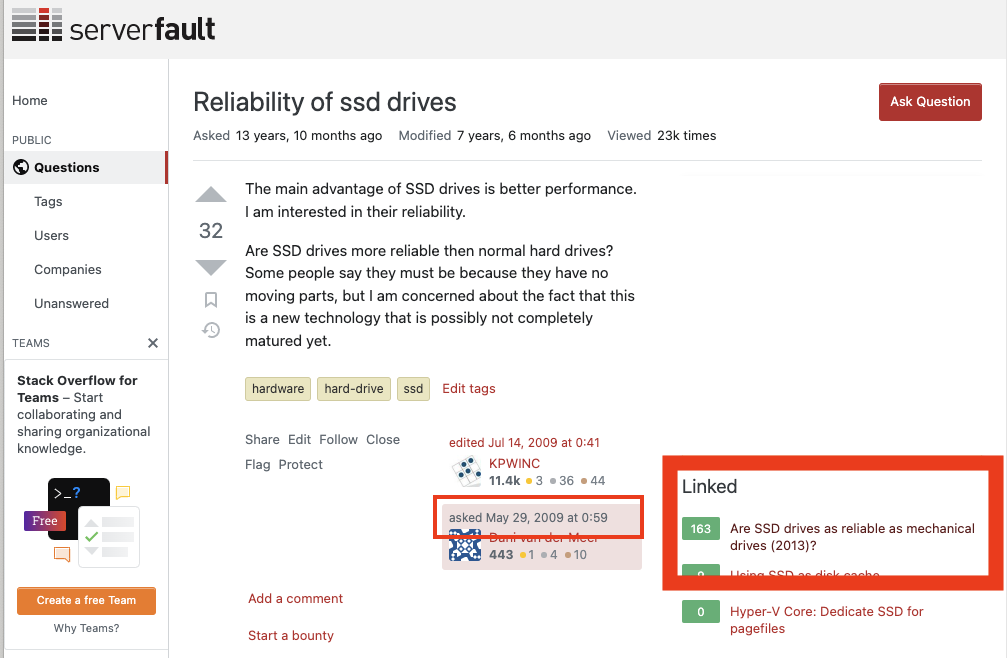Generally the same applies as with any other problem, you ask a good question that includes:
- What are you trying to do?
- What have you tried in order to make it happen?
- What results did you expect?
- What actually happened?
Where in step 2 you add something along the lines :
I found
[link to this old Q&A]that describes a similar problem but that solution there is not applicable (anymore) because of[reasons].
That generally prevents people from closing your question as a duplicate and shows that you're a professional that has done some research and/or tried a solution before asking the internet for help.
Adding the link to the old Q&A in your own question has the added benefit that your question will (usually) also appear inreciprocally in the "Linked" column of that old Q&A , directing people that found the old Q&A to your newer question. A good title for your own new question helps in that regard.
An example of this in practice is this Q&A about the reliability of SSD drives (from 2009) where the top Linked Q&A is Are SSD drives as reliable as mechanical drives (2013)?

